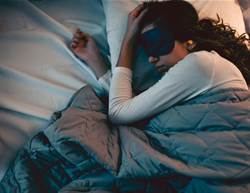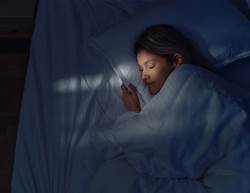It sounds too good to be true, but sleep expert Dr Michael Breus says a breathing exercise designed to slow your heart rate is an easy, medication-free way to help you sleep.
"The body basically needs a heart rate of below 60 to enter into a state of sleep," he explains. (During waking hours, an average heart rate can range from 60 to 80 beats per minute.)
Here's how to do it:
The 4-6-7 technique
- Breathe in for a count of 4 seconds
- Hold breath for 6 seconds
- Breathe out for 7
This should help you fall asleep within 10 to 20 minutes, Dr Breus says.
How long should it take to fall asleep?
Even if that two-minute sleep trick did work, nobody should aspire to fall asleep in two minutes.
In fact, Dr Breus warns that if you can nod off that quickly, it's actually a sign you're sleep deprived.
“It should take between 10 and 20 minutes to fall asleep,” Dr Breus reveals. If you're regularly struggling to drift into dreamland, clean up your sleep hygiene habits: go to bed and wake up at roughly the same time every day (even on the weekends!), keep your bedroom cool and dark, don't allow pets to sleep in your bed with you, and avoid using electronics that emit blue light (like your mobile phone or tablet) in the evening.
If the idea of giving up your phone at night is too much to bear, Dr Breus recommends trying blue-light blocking glasses.










